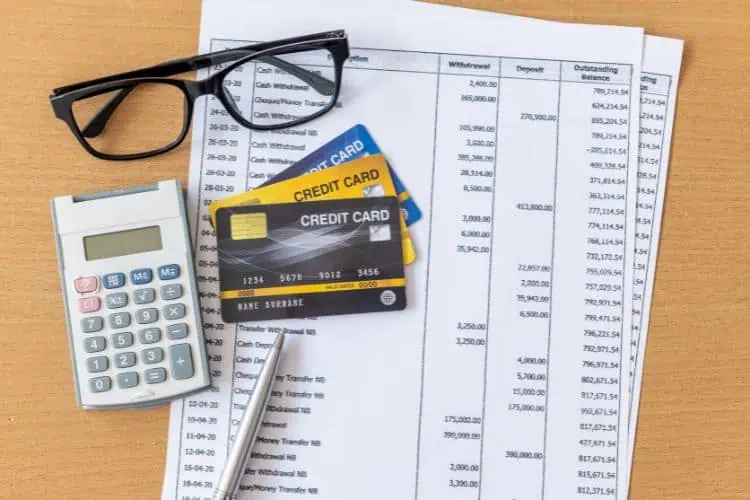When searching for a rental property in Australia, most landlords or property managers will conduct a tenant screening report on applicants before approving them.
Tenant screening reports help landlords review a renter’s credit history, rental history, criminal background, income, and other key qualifications to determine if they will be a reliable tenant.
As a renter, it’s important to understand what goes into your screening report, check it for accuracy, and take steps to present yourself positively to landlords.
By being proactive, you can address any potential issues in your history and improve your chances of rental approval.
This article will discuss how to check your tenant screening report and prepare a strong rental application.
TL;DR
Tenant screening reports often contain your credit check, rental history, criminal record, income verification and ID docs. Reviewing your own report for accuracy and addressing any red flags before applying will increase your chances of approval.

Understanding Tenant Screening Reports
Tenant screening reports are comprehensive background checks created by screening services or agencies on behalf of landlords and property management personnel.
The purpose is to assess a tenant’s risk level based on their financial responsibility and rental history. Landlords want to minimise the chances of a tenant defaulting on rent or causing property damage.
Standard tenant screening reports include:
- Credit Checks – Your credit report from bureaus like Equifax or Experian shows your credit score, payment history, debts, bankruptcies, and other details. An ideal score is over 700.
- Rental History – Confirmation from previous landlords or agents that you paid rent on time and met lease terms. Eviction records also appear here.
- Criminal Background – Police checks showing any convictions or charges for crimes. Violent, drug, or property offences often concern landlords.
- Income Verification – Pay stubs or bank statements to confirm your stable income. Landlords often require income to be 2-3 times the monthly rent.
- Identification – Copies of your driver’s licence, passport, or other government ID to verify identity.
By reviewing your report, you can check for errors, explain any issues, and take steps to improve your tenant profile before submitting a rental application.
Checking Your Credit Report
Your credit report plays a major role in tenant screening, as it demonstrates how financially responsible you are. Landlords prefer tenants with a strong credit history and score over 700.
Here’s how to check your credit report:
- Order a free copy from top credit bureaus like Equifax, Experian, and Million once per year. This lets you review your detailed history.
- Check your credit score using free tools from credit bureaus or your bank. Scores above 700 are ideal for rentals.
- Review all information for accuracy – incorrect data like unknown credit cards or debts will lower your score. Dispute errors with credit bureaus.
- If your credit score is low, work to gradually improve it before you apply for a rental. Pay all bills on time, lower balances on credit cards, and resolve collections or charge-offs.
Proactively checking your credit report gives you a chance to correct problems and demonstrate responsibility to landlords.
Checking Your Rental History
Your previous rental experiences can make or break your tenant screening results. Landlords will want to confirm you followed lease terms and paid rent consistently at prior rentals.
Here’s how to verify your history is positive:
- Contact old landlords or property managers to let them know they may be contacted for a reference. Confirm they will provide a positive recommendation.
- Search state rental authority records for any evictions filed against you. Be prepared to explain any cases to landlords.
- If you have a limited rental history as a first-time renter, provide extra personal references from employers or acquaintances who can vouch for you.
Taking these steps will surface any potentially concerning rental records before your screening and allow you to mitigate them.
Checking for Criminal Convictions
Part of most tenant screening reports involves a criminal background check from a police database. Landlords want to minimise the risk of property damage or violence.
Here are tips for checking your record:
- Visit your state police website to obtain an official criminal history or background check on yourself.
- Review all charges and convictions, especially for serious violent offences, drug crimes, theft, or property damage. These are the biggest red flags for landlords.
- If any concerning convictions exist, be prepared to explain the context and assure the landlord you do not pose a risk. Highlight positive references and rehabilitation efforts.
- For minor convictions in your distant past, be honest if they appear but emphasise how your record has been clean for years since.
Running your own background check allows you to get ahead of any criminal record before an application.
Checking Identification Documents
Proving your identity and legal rental eligibility with government-issued IDs is also key for tenant screening. Make sure to review your identification documents:
- Check that your driver’s licence, passport, proof of age card, or other IDs are valid and current. Update any expired documents.
- Have clear photocopies or scans of your IDs ready to include with your rental application. Hide any sensitive information like licence numbers.
- For non-citizens, obtain proper visa documentation allowing you to legally rent in Australia long-term.
- Be ready to provide your Tax File Number to facilitate a credit check.
Having all identification paperwork in order demonstrates responsibility and removes any barriers to the screening process.
Checking Income and Employment

Landlords want confirmation that tenants have a stable income to pay the rent every month. To verify you meet income requirements:
- Ensure you have pay stubs, bank statements, tax returns, or other documents that show your recurring income amounts and sources.
- Be ready to explain any gaps in employment history or provide supplementary income sources. Having a guarantor with good credit helps too.
- Calculate your gross annual income from all sources and make sure it meets the landlord’s typical rental income requirement, often 2-3 times the monthly rent.
By pro-actively verifying your income, you remove any uncertainties about your financial ability to pay rent consistently.
Checking Personal References
The best tenant screening reports include positive recommendations from previous landlords, employers, or acquaintances vouching for your reliability. Here are some reference tips:
- Get permission from any personal and professional references in advance so they expect a call or email.
- For past landlords, respectfully ask if they would be willing to provide a strong reference for you.
- If you lack landlord references as a first-time renter, use personal references from people who know you well.
Having 3-5 positive references ready provides extra assurance beyond just your credit and background alone.
Authorising the Screening Check
Typically when you submit a rental application, there is fine print authorising the landlord to run a screening report through an agency. Understand that approval is contingent on this screening, so don’t take offence.
By checking your own report in advance, you can pre-emptively address any issues to improve your candidacy, instead of waiting for the landlord to surface them. The best approach is to be proactive.
Requesting a Copy of Your Tenant Screening Report
Once you’ve reviewed the key areas like credit, income and background, the next step is to obtain your full screening report from a tenant screening agency.
There are many agencies that landlords use; contact your potential landlord to ask which one they use. Then reach out to request a copy of any existing tenant report they have on file for you. Review it to ensure all information is accurate and nothing is missing.
Having the actual screening report allows you to get the same information your landlord will see while evaluating your application.
It also helps to know how landlords screen tenants!
Preparing and Submitting Your Rental Application
With all your documents and references ready, you can fill out a rental application with confidence, knowing what the screening will show.
Follow these final tips:
- Have digital and physical copies of all required application documents ready to provide on demand. These include IDs, pay stubs, references, past rental agreements, and bank statements.
- Honestly disclose upfront anything of concern that could appear on your check – explaining issues ahead of time looks better than hiding them.
- Follow up a few days after applying to politely check in on the status and see if any other information is needed.
Being prepared and direct with your screening details will create a positive impression during the application process.
Wrap-Up
Tenant screening reports contain a wealth of sensitive information, so it’s understandable renters want to protect and present themselves in the best possible light.
By taking a proactive approach to checking your own tenant screening report, you can catch any inaccuracies or concerns and address them beforehand.
Maintaining an accurate credit history, stable income, positive rental track record, lack of concerning convictions, and strong references will minimise any red flags on your report.
With an understanding of what landlords look for, you can submit rental applications with greater confidence and improve the chances of your screening results in a rental approval.
